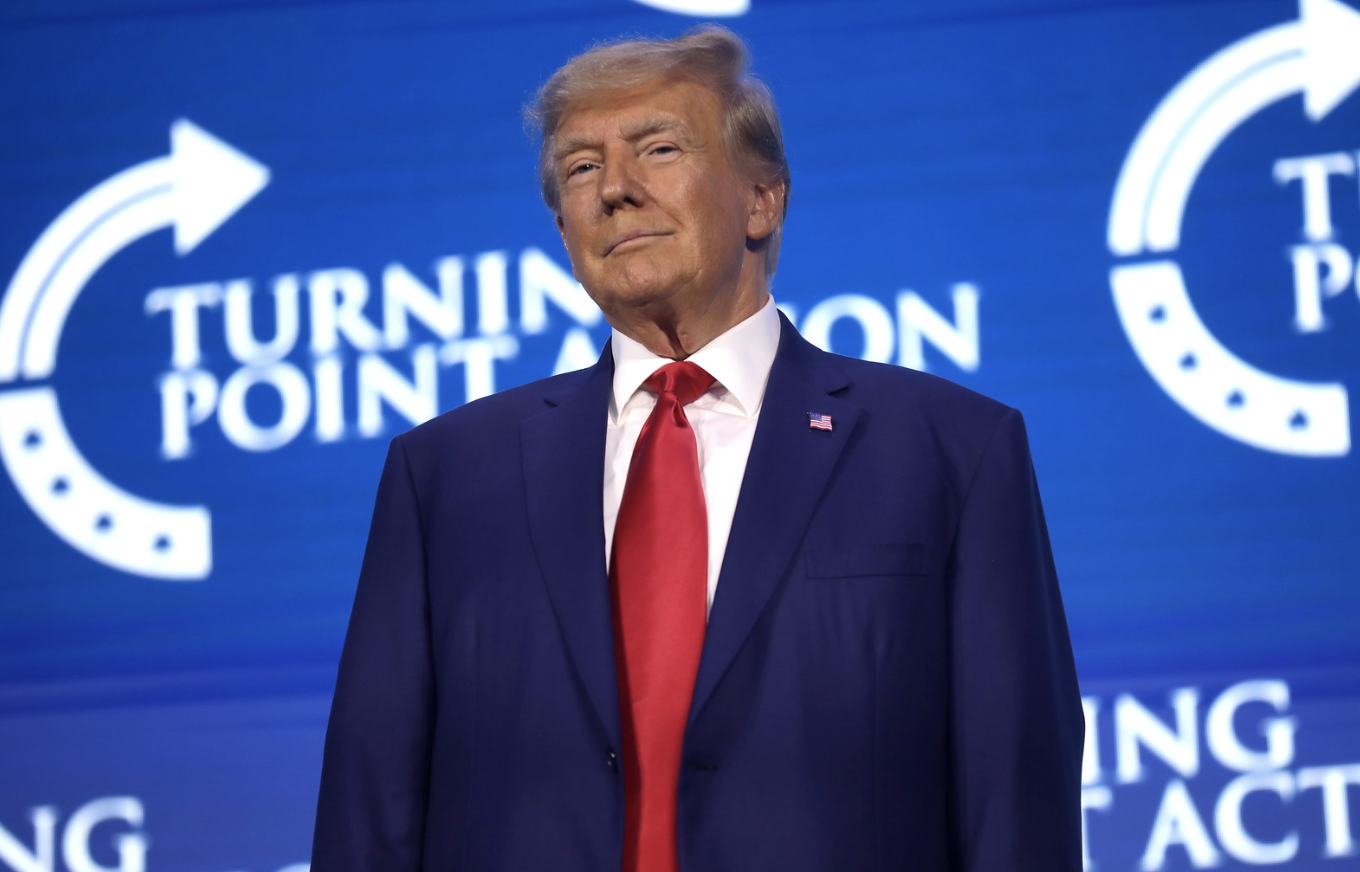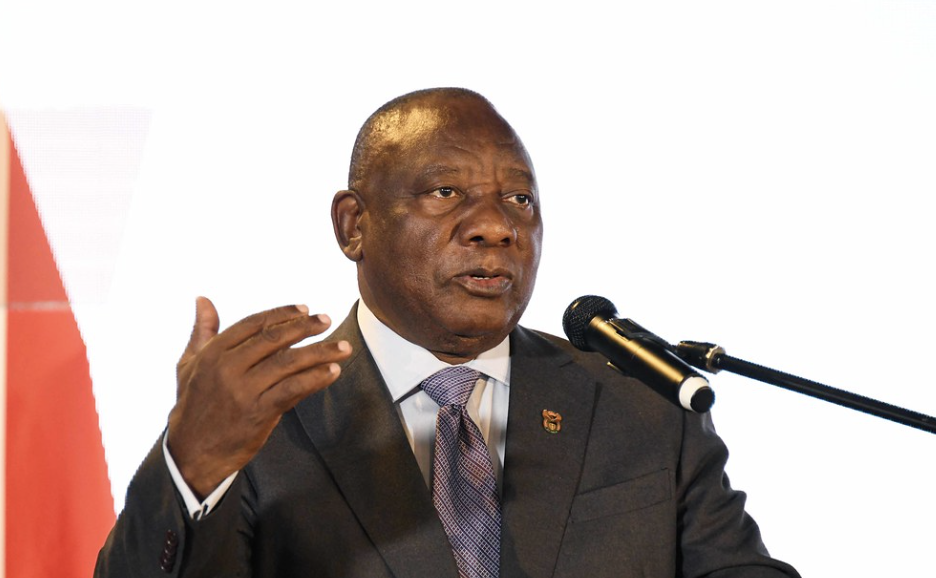News
How Trump can Transform his Legacy by Engaging with Africa Through Democratic Support and Investment
If Donald Trump wants to cement his legacy with African people and not just its elites, he needs his policy to double down on the promotion of democracy.

Former Director, The Brenthurst Foundation

Former Research Director, The Brenthurst Foundation

The response of some Africans to the victory of Donald Trump in the US presidential election has been predictably bleak. This is not surprising given his lack of attention to Africa — famously talking of “Nambia” instead of “Namibia” and using an expletive to describe certain countries.
But it would be a mistake for Africa to give up on a Trump presidency based on ideological assumptions or personal prejudice. Pragmatic engagement with an eye to improving investment in Africa and maximising trade would be a more productive approach.
There is more than just dollars on the table. What is at stake is the democratic system that the majority of Africans cherish, and that has similarly delivered President Trump a second term in office.
Several factors suggest that this Trump term might be different. The US has woken to the fact that Africa is a critical supplier of scarce renewable minerals and that China has a headstart in securing these through its cultivation of African elites and ensnaring of African economies through the Belt-and-Road Initiative.
Trump is nothing if not transactional, and if African development coincides with what he perceives to be US interests, an opportunity presents itself for African economies to cleverly play the US off against China to secure greater investment.
Critical minerals
In the words of Ambassador J Peter Pham, a former US Special Envoy for the Sahel Region of Africa under Trump: “There is no denying that access to the many critical minerals that Africa has in great abundance is needed for America’s economy today, as well as for the technologies that will lead us into the future. Also, the monopolisation of supply chains for those strategic resources by any single country, much less a revisionist power like China, is a threat to US security.”
Trump’s approach might change now that he is in his “legacy” term. He has an opportunity to follow in the footsteps of other US presidents who prioritised Africa. The most famous of these was George W Bush, who like Trump was an unpopular presidential choice among Africans. He turned out to be the best, and certainly the most generous president in living memory for Africa, however.
Bush made several far-reaching interventions. He renewed the African Growth and Opportunities Act (Agoa), which was signed into law by Bill Clinton. Under Bush, the Agoa Acceleration Act of 2004 removed further obstacles to trade, especially in textiles, and extended its life to 2015, allowing for greater certainty by investors.
On the occasion of signing this into law, Bush said: “Like all good partnerships, Agoa has been beneficial to all parties. Free trade between the US and sub-Saharan Africa has created jobs, wealth, and opportunity on both continents. Last year, under Agoa, African exports to the US increased by 55%, and African — and American — businesses saw a 15% increase in our exports to sub-Saharan Africa that equals almost $7-billion.”
In 2003, Bush further cemented his African legacy by signing off on the President’s Emergency Plan For Aids Relief (Pepfar), which has seen the US allocate more than $110-billion towards HIV/Aids treatment, prevention and research. Overseen by US agencies in more than 50 countries, Pepfar is believed to have saved more than 25 million lives, mostly in southern Africa.
Benefits of reform
The Millennium Challenge Account was brought into law in 2004, also under Bush. In its first 20 years it spent more than $17-billion across 22 countries, their eligibility dependent on a range of 20 measures, including civil and political liberties and governance. It tries to spend money better in those countries that seem to be headed in the right direction, offering an example of the benefits of reform.
If Trump wants to cement his legacy with African people and not just its elites, he needs his policy to double down on the promotion of democracy. There is both a principled and pragmatic reason for this.
The principled reason is straightforward: democracy, with all its flaws, has shown itself to be the only political system capable of placing the will of the people at the centre of power. The alternatives — autocracies, repressive states that steal elections and military regimes — all deliver insecurity and economic misery, as the African record clearly shows.
The pragmatic reason is equally simple: trade and investment work best with countries that have open, democratic systems and where the rule of law can be counted on to solve disputes in a rational manner. Making deals with autocrats might provide short-term profits, but these vanish as longer-term instability takes hold over succession and growing repression.
Trump would do well not to confuse autocratic rulers with their citizens. According to Afrobarometer, “two-thirds (66%) of Africans say they prefer democracy to any other system of government, and large majorities reject one-man rule (80%), one-party rule (78%), and military rule (66%)”.
US foreign policy under President Joe Biden adopted a pragmatic approach, placing the vaguely defined notion of “security interests” above those of democracy. Strategy trumped human rights. Rigged elections have largely gone unchallenged lest they upset this imagined balance of priorities.
In so doing, America undermined and undervalued its greatest asset among Africans — its democratic character. This explains why more Africans polled (49%) would prefer to emigrate to Europe or the US if they were to leave Africa. And now nearly 60% of young Africans would prefer to emigrate, most to the US.

Make democracy great again
Biden has not been especially good for African democracy, or its economies. The same could be said for Barack Obama who, despite his early promise, achieved little for Africa apart from his election per se. There is also no reason why Kamala Harris would have been any different. But Trump, with a solid base of domestic support, could be if he chooses to make democracy great again.
African democrats need support as they challenge these autocratic regimes and, in cases where they have overcome substantial odds to win elections with such overwhelming numbers that they cannot be denied, with entrenching democratic governance.
Taking a leaf out of the Millennium Challenge Account book, there are several ways to calibrate assistance to African countries, including visa access, educational opportunities, increasing trade and investment flows by reducing risk premiums, and government training and technical help to democratic standards and performance.
Not only will this encourage more countries down this path, but the record shows that better democracy produces, overall, better governance and higher rates of growth. Democracies are thus less likely to waste aid, and doubling down on the democracy determinant means improving this match.
Reaching out to African democrats and speaking out against autocrats or those who openly flirt with malign actors such as Russia and Iran would be an important shift as the continent enters into a life-and-death struggle against repressive regimes.
Not only would this place Trump on the right side of democratic history, it could ensure he has a meaningful African legacy, unlike his predecessors.
This article originally appeared on the Daily Maverick
Photo: Gage Skidmore Flickr

